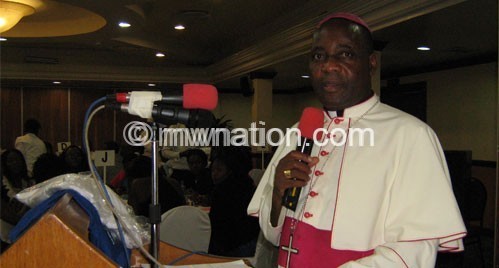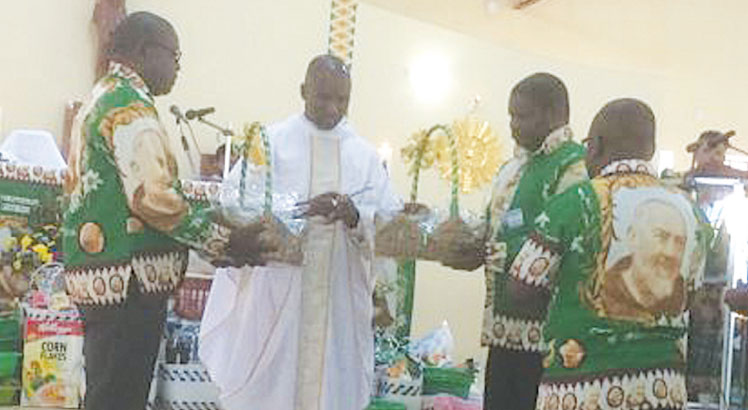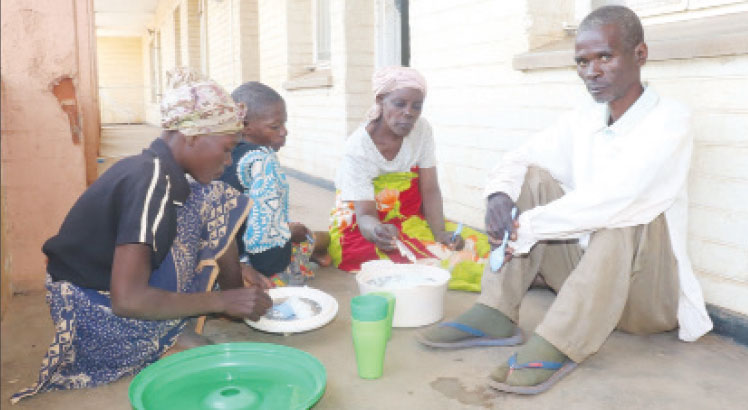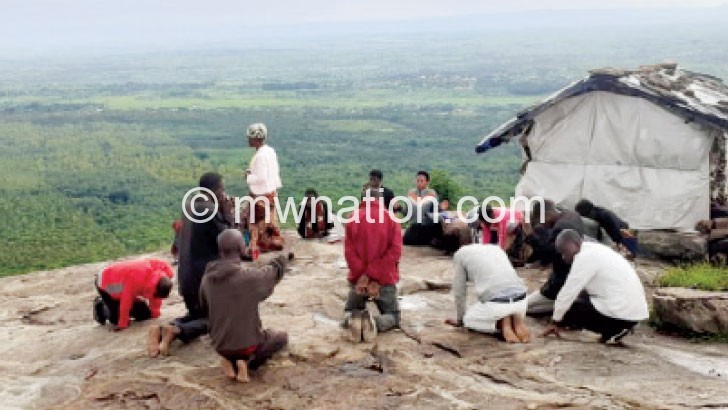Bishop encourages churches to fight gender-based violence
Lately, the country has recorded worsening levels of gender-based violence (GBV). Men have gone wild and conspired against their own wives, nieces, and relatives. This has brought devastating impact on lives of the victims. Catholic Bishop of Mangochi Diocese, Montfort Stima, whose diocese is not spared from the social ills, unequivocally chides the malpractices and calls on churches to step in and fight the cancer. To set the ball rolling, on Thursday the diocese through Catholic Commission for Justice and Peace (CCJP) under Tithetse Nkhanza Project funded by UKAid, distributed push-bikes to the project facilitators and mentors from T/A Chowe to ease their mobility when discharging their duties. OUR CONTRIBUTOR, AYAMBA KANDODO, caught up with Bishop Stima to hear more:

You spoke highly about churches to be against gender-based violence; what are you insinuating at?
The Catholic Social Teaching (CST) promotes human dignity as every person was made in the image and likeliness of God. As such every person has a right to life, dignified life. In that perspective no human rights abuse such as gender based violence should be condoned. CST compliments the Republican Constitution which is the supreme law of the land.
Tell me more about the interventions your diocese through CCJP has embarked on in relation to the issue at hand?
The following are some of the interventions our diocese has done or (is doing) in an attempt to deal with GBV: Firstly, we have identified and empowered facilitators and mentors for both in and out of school boys and girls through capacity building to challenge harmful cultural practices that infringe upon the rights of women & girls such as forced early marriages, early pregnancies.
Secondly, the project in conjunction with T/A Chowe and the police intercepted an arranged Nikka between a teenager and a Sheikh. Thirdly, we have intensified sensitizations through radio programmes. Fourthly, we have engaged policy holders to fashion out measures/strategies that curb violence against women and girls (VAWG) such as by-laws and, lastly we have engaged duty-bearers on social norms, practices and power relations that violate the rights of women and girls.
Your Lordship, may be before we proceed with our chat, help us to know more about you and your diocese?
I answer my name as Montfort Stima. I am the bishop of Mangochi Diocese for over seven years now, having joining the diocese in 2014. I was ordained as a priest on August 23, 1986 after going to seminaries such as Kachebere Major Seminary in Mchinji and St. Peter’s Senior
Major in Zomba. Before I came a bishop, I served in positions ranging from priest, pastoral secretary, vicar general and auxiliary secretary. You may wish to know our Mangochi Diocese covers Mangochi, Machinga and Balaka districts.
Now what prompted you to embark/implement on the various human rights projects?
The church is the voice of the voiceless as such it cannot give a blind eye to the atrocities perpetrated against humanity. Secondly, the church complements government efforts in various aspects including empowerment of the people.
Is there any unique thing you think churches can bring in as far as GBV fight is concerned?
Yes, the holistic approach in prevention and response to the vice which take into account both spiritual and physical needs aiding healing in the process.
What do you have to show as milestones since you started your interventions?
The interception of the Nikkah involving a teenager and sheikh was one of the classic example we shall forever cherish as a big milestone.
Again, the empowerment of both in and out of school as advocates of human rights promotion, the studies carried out to ascertain the nature, magnitude of VAWG vice and the engagement of the policy holders to curb issues of GBV, child marriages and other vices stand out as our milestones.
Challenges faced?
The social-economic impact of Covid-19 such as closure of school culminating in suspension of the project activities. The economic impact resulted in reduction of the deliverables and the targeted
schools from eight to five in the impact areas. However, in response, the project adapted virtual measures such as radio program and virtual meetings. Another calamity we faced is the upsurge in teenage pregnancies and early marriages in the district during the covid19 period.
Last remark?
Commended are collaborative efforts of different stakeholders in this project such as traditional, religious leaders, police, office of the District Education Managers Office (DEM) Tetratech, Plan Malawi and UKAid’s Foreign Commonwealth Development Office (FCDO) for technical and financial support towards Tithetse Nkhanza project.





